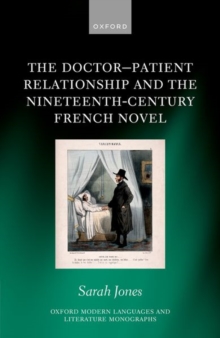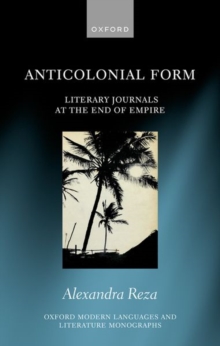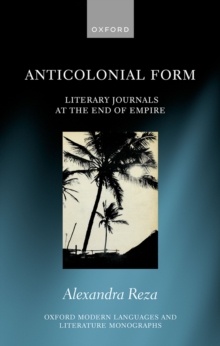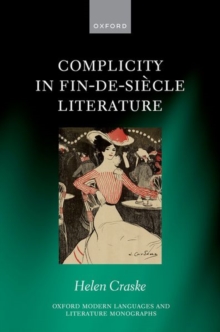
Loss and the Other in the Visionary Work of Anna Maria Ortese PDF
by Vilma De Gasperin
Part of the Oxford Modern Languages and Literature Monographs series
Description
This book examines the Å“vre of Anna Maria Ortese (1914-1998) from her first literary writings in the Thirties to her great novels in the Nineties.
The analysis focusses on two interweaving core themes, loss and the Other.
It begins with the shaping of personal loss of an Other following death, separation, abandonment, coupled with melancholy for life's transience as depicted in autobiographical works and in her masterpiece Il porto di Toledo.
The bookthen addresses Ortese's literary engagement with social themes in realist stories set in post-war Naples in her collection Il mare non bagna Napoli and then explores her continuing preoccupation with socio-ethical issues, imbued with autobiographical elements, in non-realist texts, including her masterful novelsL'Iguana, Il cardillo addolorato and Alonso e i visionariThe book combines theme and genre analysis, highlighting Ortese's adoption and hybridization of diverse literary forms such as poetry, the novel, the short story, the essay, autobiography, realism, fairy tales, fantasy, allegory.
In her work Ortese weaves an ongoing dialogue with literary and non-literary works, through direct quotations, allusions, echoes, adoption of motifs and topoi.
The book thus highlights the intertextual relationship with her sources: Leopardi, Dante, Petrarch, Manzoni,Collodi, Montale, Serao; Shakespeare, Milton, Keats, Blake, Joyce, Conrad, Melville, Poe, Hawthorne, Hardy; Manrique, Gongora, de Quevedo, Villalón, Bello, Cantar del mio Cid; Heine, Valery, Puccini's Madam Butterfly, folklore, popular songs, and the Bible. Ortese thus shapes her literary themes inthe background of social, political and economic upheavals over six decades of Italian history, culminating in an allegorical critique of modernity and a call for a renewed bond between humans and the Other.
Information
-
Download - Immediately Available
- Format:PDF
- Pages:344 pages
- Publisher:OUP Oxford
- Publication Date:27/03/2014
- Category:
- ISBN:9780191655111
Information
-
Download - Immediately Available
- Format:PDF
- Pages:344 pages
- Publisher:OUP Oxford
- Publication Date:27/03/2014
- Category:
- ISBN:9780191655111










